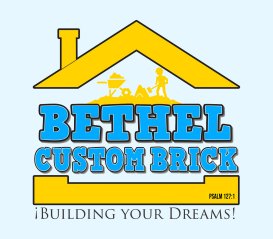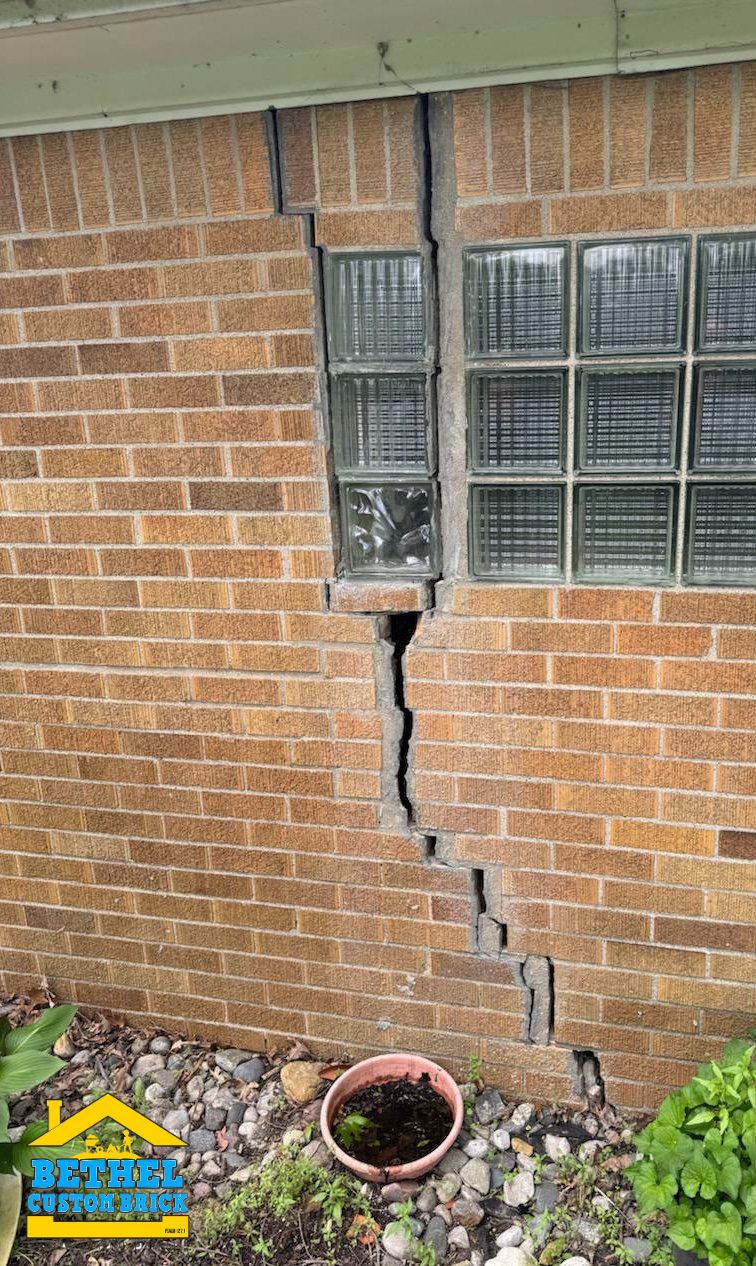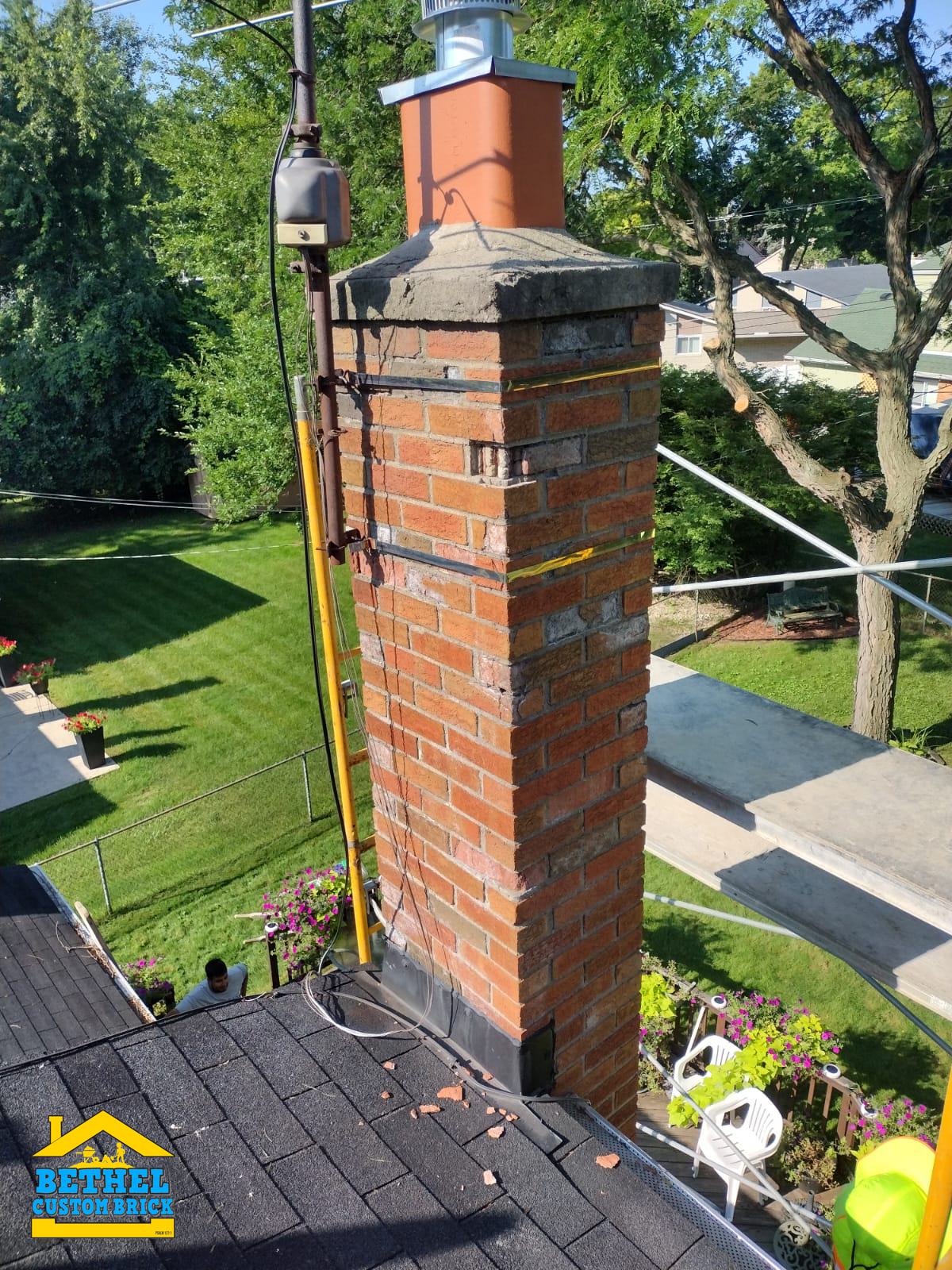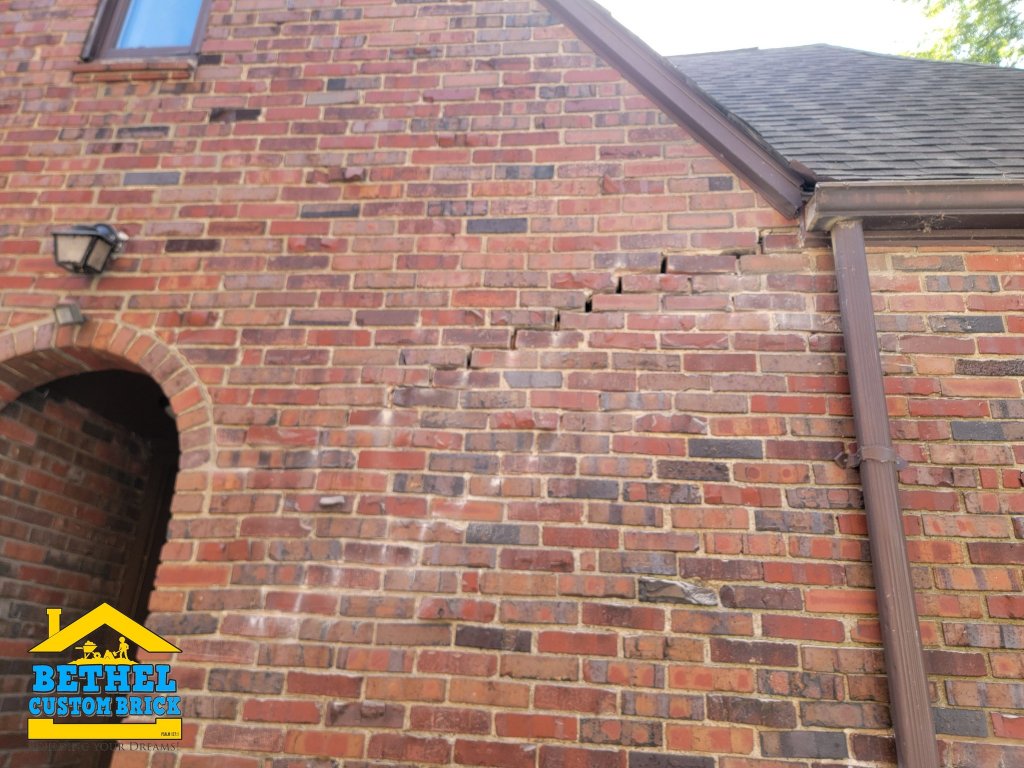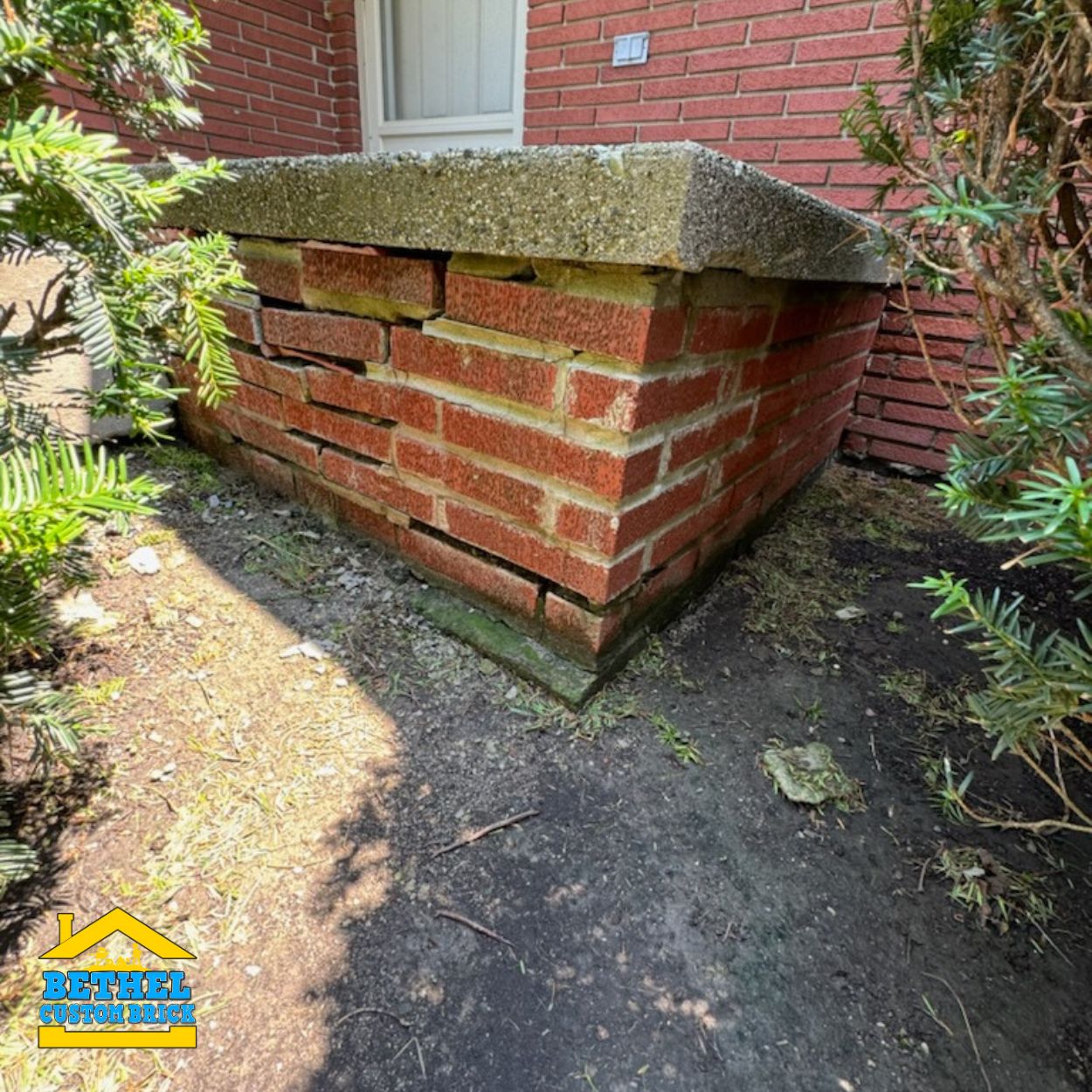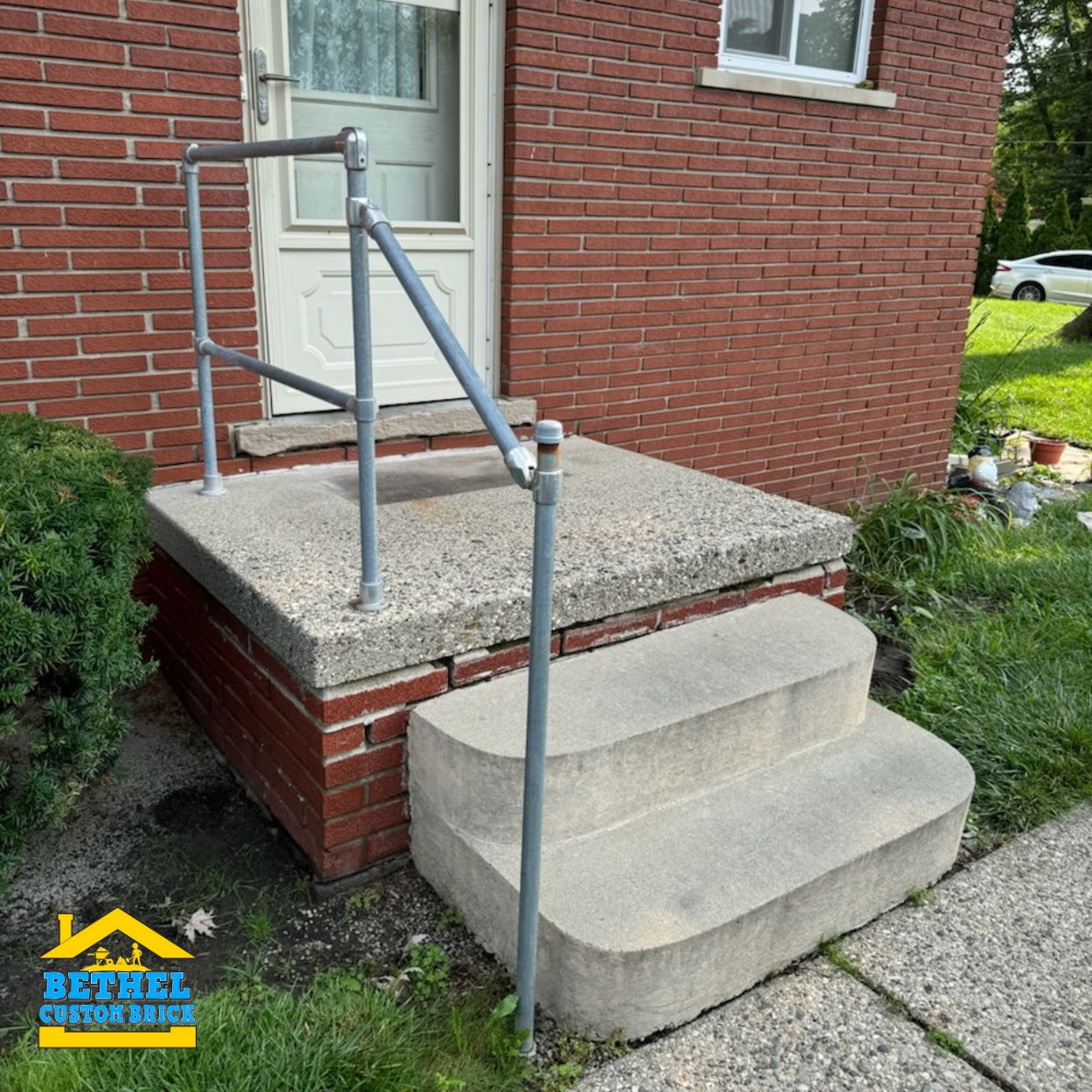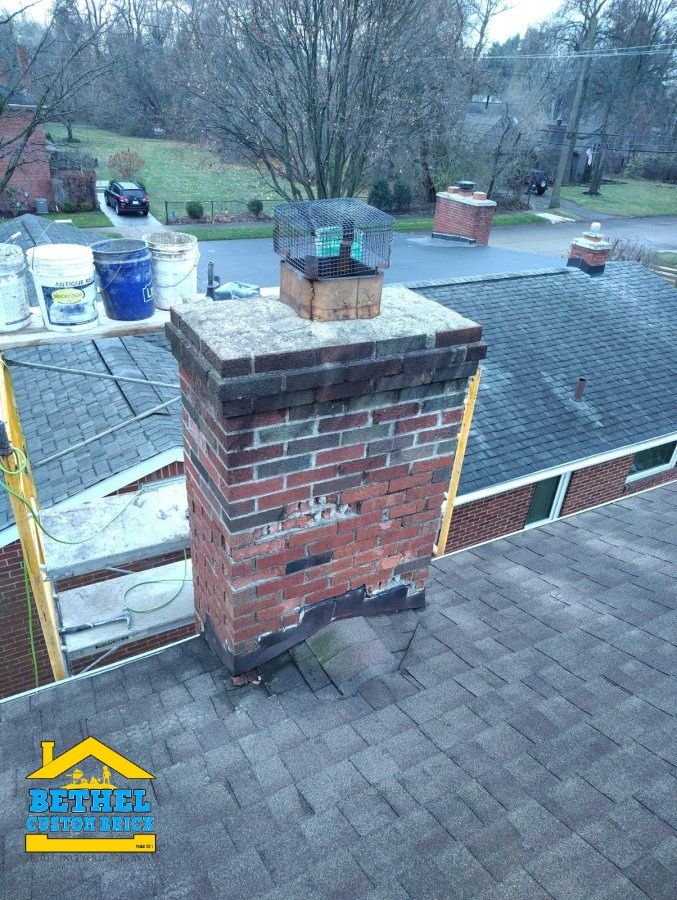Brick structures are renowned for their durability and classic appearance. However, even the sturdiest brickwork requires care and, sometimes replacement. While minor repairs can address some issues, certain situations call for complete brick replacement. Here, we explore the top five reasons you might need to consider replacing bricks in your home or building.
1. Severe Cracking in the Brick or Mortar
Why It’s a Problem:
Cracks are one of the earliest and most visible signs of structural issues. While minor cracks can often be patched, severe or spreading cracks may indicate underlying structural problems. Large cracks compromise both the appearance and stability of brickwork and can worsen over time if left untreated.
When Replacement is Necessary:
If the cracks are deep, wide, or appear in a staircase pattern, brick replacement may be necessary. Structural issues beneath the surface, such as foundation movement, may require professional assessment and repair to avoid further damage.
2. Water Damage and Spalling
Why It’s a Problem:
See Photo of Spalling BrickSpalling, or flaking of the brick surface, occurs when water infiltrates brick material and freezes, causing the surface to break apart. This common issue often appears in colder climates, where freeze-thaw cycles are frequent. Over time, water damage can weaken the structural integrity of bricks and lead to more significant problems.
When Replacement is Necessary:
Spalling indicates that bricks have absorbed significant moisture. In cases where multiple bricks are spalling or the damage is extensive, replacement is often the best solution. Replacing spalled bricks can improve the overall look of your masonry and prevent the damage from spreading to surrounding bricks.
3. Compromised Mortar or Deterioration
Why It’s a Problem:
Mortar binds bricks together, providing stability and structural integrity. Over time, mortar can deteriorate due to weather exposure, moisture, and natural aging. When mortar weakens or crumbles, it can cause bricks to shift, creating gaps and weakening the entire structure.
When Replacement is Necessary:
In cases where the mortar is significantly eroded, repointing (replacing old mortar) might be necessary. However, if the weakened mortar has caused extensive brick movement or gaps, replacing affected bricks may be the only option for restoring stability.
4. Bowing or Bulging Walls
Why It’s a Problem:
Bowing or bulging walls indicate serious structural issues. This occurs when the brick wall starts to bend outward due to water infiltration, inadequate support, or shifting foundations. Bowing walls not only compromise the look of your brickwork but also pose a safety risk.
When Replacement is Necessary:
Bowing walls often require immediate attention, and replacement is typically the most effective way to restore the structure. In some cases, complete wall reconstruction may be necessary to address the root cause and prevent future issues.
5. Historic Brick Restoration and Preservation
Why It’s a Problem:
Older or historic brick structures add character to properties but maintaining them requires specialized care. Over time, bricks in historic buildings can degrade, and finding matching materials for repair is crucial to preserving the building’s authenticity. Historic bricks may not meet modern standards, making replacement necessary for both preservation and safety.
When Replacement is Necessary:
If you own an older property, replacing damaged bricks with historically accurate materials can help preserve its character. Working with a professional masonry service familiar with historic restoration ensures that the integrity and aesthetic of the building are maintained. Find out more about The Importance of Professional Brick Repair for Historic HomesThe Importance of Professional Brick Repair for Historic Homes in this easy to read article.
Should You Repair or Replace Your Brickwork?
When it comes to maintaining brickwork, knowing when to repair and when to replace can save you time, money, and effort. If you notice any of these signs—severe cracks, water damage, deteriorated mortar, bowing walls, or historic brick issues—consider reaching out to a masonry professional. They can assess the condition of your brickwork, recommend the best course of action, and ensure your property remains safe, stable, and visually appealing.
Regular brick maintenance is an investment in your property’s longevity and value. Whether for structural or aesthetic reasons, timely brick replacement can make all the difference in preserving the charm and durability of your brick structures.
